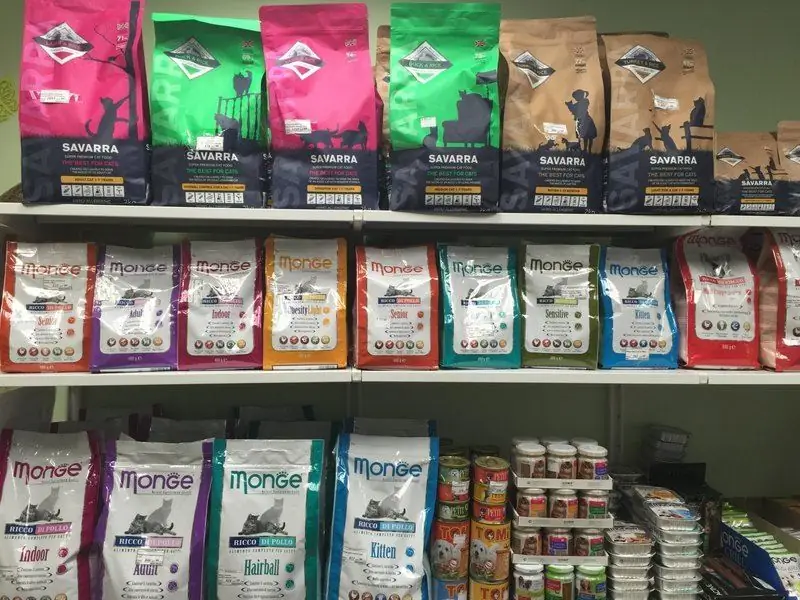
Table of contents:
- Author Bailey Albertson albertson@usefultipsdiy.com.
- Public 2023-12-17 12:53.
- Last modified 2025-01-23 12:41.
Why there was a shortage of food and goods in the USSR

In the conditions of the modern variety of goods and services, few people remember the times of total scarcity. In the USSR, a deficit existed in every period of its history. The reasons for it at different stages were different, but always people were looking for ways to get around the lack of products and goods.
Reasons for the shortage of goods in the USSR
The state of the market is called a shortage of goods, in which citizens have solvency, but they cannot buy goods due to their absence. This phenomenon was characteristic of the Soviet Union at all stages of its development.
The economy in the Union was planned. The state drew up a plan for the production of all groups of goods, and factories and plants had no right to deviate from it. The population was offered a limited amount of goods, which were often not needed by anyone. And the really necessary things were either not produced at all, or did not reach the common people. This led to a severe deficit.
Most scarce goods
In the Soviet Union, everything was in short supply - from soap to a car. But there were certain groups of goods that were almost impossible for mere mortals to acquire.
One of the striking examples of scarcity is passenger cars. From 1965 to 1975, the production of cars increased more than fivefold. But the demand for them did not diminish, but only increased. Most of the cars produced were exported. The cars were given to officials, writers, actors. Ordinary people had to wait in line for a car for years.
Household appliances were also in short supply. Washing machines, televisions and refrigerators were produced in small quantities, and the demand for them was huge. VCRs were the most scarce equipment. Their cost was about ten average monthly salaries. To get a VCR, a person had to leave an application in a store, and waited in line for about a year.

People have been waiting for a refrigerator or washing machine for years
In the 60s, there was a shortage of books. It was associated with several reasons:
- fashion for books;
- relatively low cost;
- lack of other types of entertainment;
- poor development of the paper industry;
- strict government censorship.
The publishing policy of the state was partisan. Marxist-Leninist literature and works of members of the Writers' Union were published in huge numbers. Classics, science fiction, detective stories were not available.
There was also a shortage in the food sector. In many stores, shelves were empty for months. In short supply were:
- sausage;
- coffee;
- exotic fruits - bananas, kiwi, coconuts;
- meat.
People had to stand in long queues for food.

There were huge queues even in a half-empty grocery store
Natural or Artificial Scarcity?
During the entire existence of the USSR, the commodity deficit experienced several peaks. The shortage of products was more often due to artificial reasons than natural ones.
The first peak occurred almost immediately after the formation of the USSR. In 1928, a rationing system for receiving goods was introduced. Working people were given special cards by which they received food and non-food products for themselves and family members. Free sales were also conducted, but prices were prohibitively high. In 1935, this system was canceled, but there was a sharp increase in prices for all groups of goods.
The second peak of the deficit fell on the years of the Great Patriotic War. This was the only situation in which shortages of food and other goods arose for natural reasons. All funds were spent on the maintenance of the army, the production of weapons and military equipment.
The third peak was observed in the late 60s, after the economic reform. It lasted until the collapse of the Soviet Union in 1990. Inflation has led to the fact that the nominal money income of the population has increased several times. At the same time, product output did not grow, so there was a sharp shortage of all groups of goods. People were making supplies, which made the situation even worse.
Lack of products and goods in different regions
The commodity deficit varied in different parts of the country. All regions were divided into four categories of supply - special, first, second and third. The special and first categories included:
- Moscow;
- Leningrad;
- large industrial centers;
- Estonia;
- Latvia;
- Lithuania;
- resorts of union significance.
These territories had an advantage in supply. They received food and other goods from central funds, primarily and in large quantities. The territories accounted for 40% of the country, but received up to 80% of the products.
The rest of the settlements were included in the second and third categories. From the central funds they received only bread, sugar, cereals and tea. The rest had to be done independently.
How people got around the deficit
The massive deficit led to the emergence of speculators, or, as they were also called, black-marketeers. These people made friends with store directors, buying up scarce goods from them. Then speculators sold them illegally, “out of the box”. At the same time, the price increased several times. Despite this, the farmers were successful. Each resident knew where to find a speculator and what goods he had.

People bought most of the goods from the merchants, "from under the counter"
People have always made stocks by buying scarce things, sometimes even unnecessary for them. Subsequently, these things could be exchanged for others. There was also no intangible barter. People often exchanged services, so it was so important to have good acquaintances.
Video: commodity deficit in the USSR in different years
There has always been a shortage of goods in the USSR. Only during the war years did he have natural causes. The rest of the time, the deficit was created artificially, for profit by the state.
Recommended:
How To Replace Starch In Baked Goods, Corn And Potato, Depending On What It Is For + Photos And Videos

It happens that the recipe for the baked goods you like includes starch, but it is not. Do not be upset, because this ingredient is easy to replace with other products
The Better To Feed A Kitten: Natural Food, Ready-made Dry And Wet Food, What Foods You Can And Cannot, Feeding Rules, How Many Times A Day

Kitten feeding rules. Veterinarian recommendations. Features for every age. Prohibited and permitted products, prepared feed. Feed reviews
Analysis Of Cat Food: Comparison Of Their Composition, From Which Dry And Wet Food Is Made, Analyzer Of Components (ash, Preservatives, Etc.)

What ingredients should be present in cat food and what ingredients should be avoided. How diets differ from each other
What Food To Feed The Maine Coon (adult Cat And Kitten): Dry And Wet Food, Recommendations, Permitted And Prohibited Foods

How to feed a kitten and an adult Maine Coon cat. What products are allowed to be given to animals. How to choose dry food for Maine Coon
What To Do If There Is No Sound In Yandex Browser - Why It Doesn't Work And How To Fix It, Step-by-step Instructions With Photos And Videos

Reasons why there may be no sound in Yandex Browser. How to fix the problem with programmatic methods. What to do if all else fails
